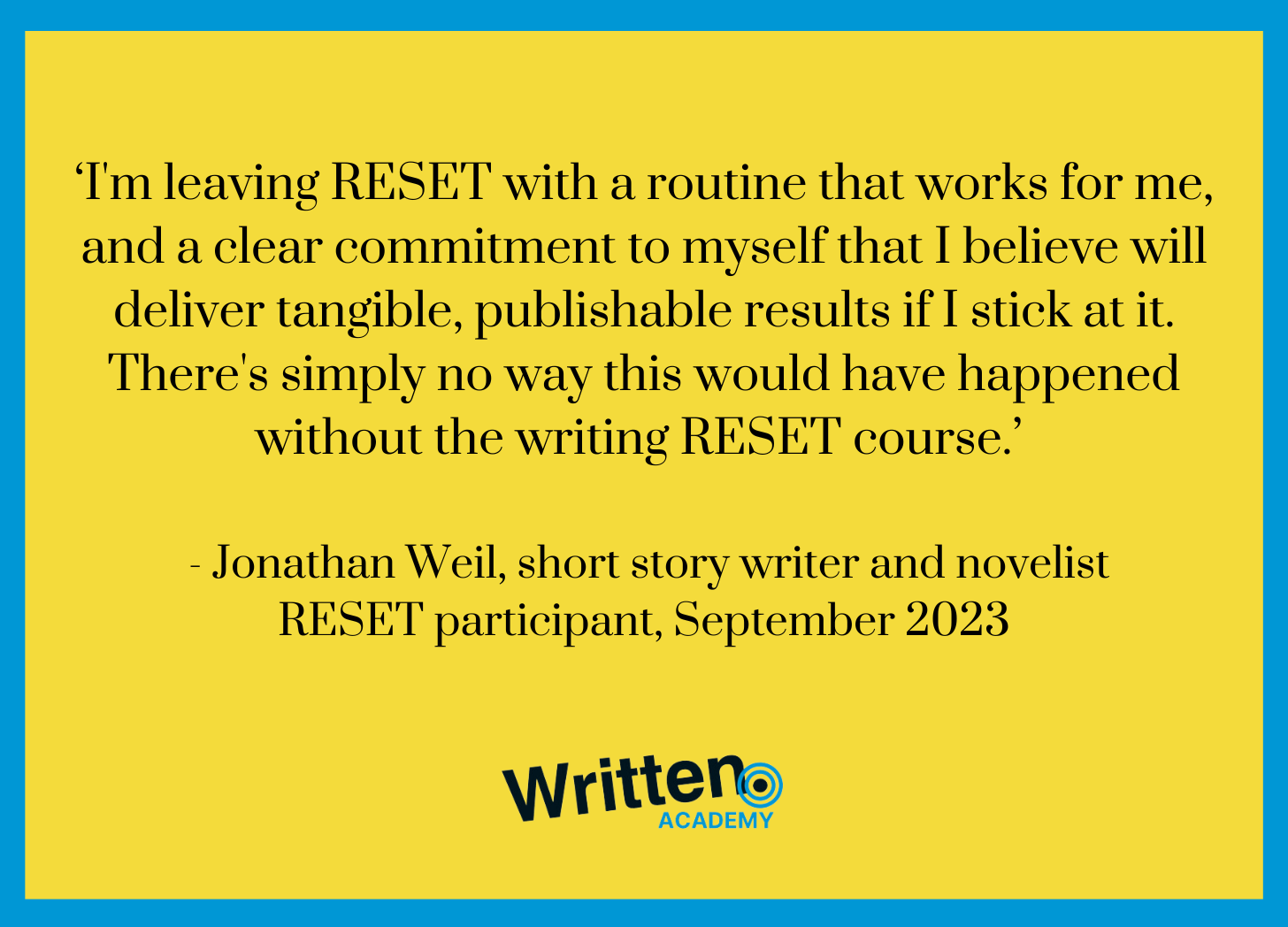Happy Monday
Why do we share writing tips? Will all of them work?
We considered the structure of our book Written long and hard. At one point it was going to be a Big Book of Writing Tips about how to get the work done. You know the sort of thing - do this, don’t do that, etc.1
That kind of book would have worked – but only up to a point. Why?
If there’s only one tip you ever learn from our books, newsletters and courses it’s the one I’m going to tell you now. It’s like the tip of tips. The top tip. It guides everything we do.
What’s the secret?
In 2018 we partnered with an American university to conduct a piece of research with 600 or so writers.
We wanted to find out whether there was one thing that made some writers more (or less) able to get the writing done.
Was there a secret sauce to writing productivity? In short, no there wasn’t.
But we did find that the writers who were less likely to procrastinate, more likely to be prolific, and perhaps importantly were most contented with their writing did one thing.
Productivity is personal
They’d all created a system of tools, tactics, tips and approaches around themselves that helped and supported their writing. And these approaches were personal to them. Age or experience didn’t seem to matter as much as whether a writer had developed a ‘system’ of their own.
In short, how you get the writing done is personal to you.
What works for someone else might not work for you. It’s useful to understand how other writers get the writing done, but never assume that’s how you should write.2
Always remember that ‘advice’ on how to get the writing done - however well-meant and from whatever source - is based on the life experiences of the person giving it.
The key is to find the tips that help you get the writing done by experimenting with different approaches.
Take all writing advice with a pinch of salt – even ours!3
Keep writing
Chris
All our tips in one place
We’ve compiled all our writing tips into one handy link: /writing-tips
We’d love you to check them out. Some of them might work for you, some of them won’t. That’s OK. In fact, we want you to practice rejecting tips, jettisoning advice, as you slash and burn writing myths that hold you back.
There may be one thing that helps you get the writing done, there could be lots - we celebrate them all, however quirky and weird they are.
And finally, we’d love to hear what tips have helped you, add a comment below, and we could include (with credit) in a future edition.
RESET early bird places available today
If you’ve read our book or find our tips and newsletter helpful, you might like to know that places for our January RESET course go on sale today. There are two versions of the course now - online and with in-person coaching.
There’s an early bird ‘window’ (if there is such a thing) where you get some money off the full price of the course - we’re offering this for one week.
Places are limited because of the interactive nature of the programme. If you’re interested, join the waiting list. Thanks for considering.
I’m putting this as a footnote because it’s probably only of noodling interest to those who have read our book. We realised that a Big Book of Writing Tips would simply send people off trying those tips without first understanding the underlying principle that they should be applied in an experimental and dare I say it, playful way. Readers had to understand that the things they believe about themselves and their writing might be what we call a myth — something they’ve come to assume over time. Once they see this then they can start to build up a toolkit of approaches that work for them and their life.
In our experience, the challenges people have with their writing are often the consequence of structural and cultural power imbalances. People with higher status (tutors, bosses, supervisors, managers, established writers etc) passing down often well intentioned ‘advice’ which the recipient interprets as universally true and so, tries to apply to their own lives. When the recipient struggles to follow it (because everyone’s lives and situations are different) we find that they often attribute this to a personal failing rather than to the social and cultural forces that cause the power imbalances in the first place. We wrote Written as we did because we didn’t want to play the role of an authority figure ‘handing down tips’. This would have just added to the whole problem we were trying to address.
Thank you for reading this far - you’ve just indulged Chris and his love of footnotes :)







